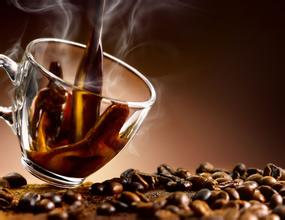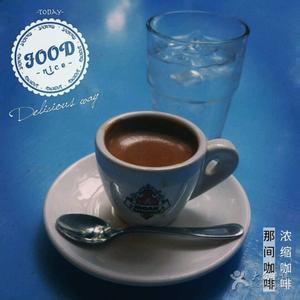The taste of Guatemalan coffee is smooth and smooth. Introduction to fine coffee beans.
In 1960, leftist military groups appeared in Guatemala. [1]
In 1982, the leftist guerrillas across the country merged to form the "National Revolutionary Alliance of Guatemala" and armed struggle spread throughout the country. Farmers dissatisfied with the overthrow of the Arbens regime organized a guerrilla group in which more than 100,000 people were killed and millions displaced. In September 1982, the persecution of the local Mayans by the Guatemalan army was close to genocide, and more than 9000 Mayans were killed. Since 1983, persecution on the part of the Government of Guatemala began to decrease and the country began to democratize again. However, the disparity between the rich and the poor has not been solved, and only a small number of people who account for 1% own more than 60% of the arable land and wealth. In 1985, Guatemala reorganized the general election. [7]
In December 1996, the government of Arzu (National Vanguard Party) and the National Revolutionary Union of Guatemala reached a final peace agreement, which officially ended 36 years of civil strife in Guatemala. [1]
In 1996, the 36-year guerrilla war ended by signing a peace treaty. [7]
In the general election in Guatemala on November 9, 2003, Oscar Berhe, the candidate of the National Grand League, was elected president, and the National Grand League is the most powerful party in Congress. The participation rate is 54.5%. [7]
On September 9, 2007, presidential and congressional elections. Otto Perez Molina and Alvaro Colom entered the second round of voting in the presidential election. At 10:00 that evening (local time), the Central Election Commission announced that Colom had won by 5.4%, becoming Guatemala's first left-wing president in 53 years.
On November 6, 2011, in the second round of voting in the general election in Guatemala, Otto Perez Molina, on behalf of the Patriotic Party, defeated LIDER member Manuel Baldison with 54.48% of the vote, becoming the 48th president of Guatemala.
The aroma of coffee liberates all forms, hearts and national boundaries. Through coffee, the mood leaves the country at any time and lands in a strange country half a world away. Even at the end of the world, you can share a mood. Antigua was the capital of the Spanish colonial period in 1543. Although this emerald-like valley has been surrounded by active volcanoes in all directions, layered, deliberately waiting and full of dangers since ancient times, its vastness, vastness and fertility still tempted Spaniards to build a capital in the precarious cliff valley.
The volcano once destroyed the once-prosperous capital in an instant, robbing it of all its prosperity and beauty overnight. After this subversive mountain city, the splendor has disappeared for more than 200 years, and Antigua has never swaggered again. After being dull, Antigua is now run by the last remaining Indians. These hardworking Indians became later coffee producers. They not only discovered the rich and attractive unique smell of Antigua coffee, but also brought it to people all over the world. Today, Antigua coffee enjoys a reputation as the best quality coffee in the world, and Antigua coffee is praised by coffee connoisseurs as the best and most unusual coffee in the world. Antigua coffee is sought after by most coffee lovers because of its distinctive aroma. Because it is planted in the hills of volcanoes, it can retain its own characteristics more than Costa Rica, the main reason is that it has more geographical and climatic advantages than Costa Rica. Guatemala is located in the tropics, but due to the relatively high altitude, the climate is mild, it is a subtropical climate. Under the influence of this climate, coffee trees blossom and bear fruit more slowly than coffee trees in other parts of the world. However, the mild climate and fertile soil make it an excellent environment for growing coffee.
The coffee industry, run by the Mayans, once boomed Guatemala's economy and dominated the national economy. Unfortunately, the political situation in Guatemala is not good for these coffee growers. High output is usually a sign of a country's overall economic prosperity. However, coffee production in Guatemala has declined relatively, at 700kg per hectare, compared with 900kg per hectare in El Salvador and 1700 kg per hectare in Costa Rica. Guatemalan coffee exports are controlled by private companies, but the National Coffee Council controls other sectors of the coffee industry.

Important Notice :
前街咖啡 FrontStreet Coffee has moved to new addredd:
FrontStreet Coffee Address: 315,Donghua East Road,GuangZhou
Tel:020 38364473
- Prev

Flavor and taste characteristics of Costa Rican coffee an introduction to the producing areas of fine coffee beans
Costa Rica is located in the Central American isthmus, belonging to North America, 10 north latitude, 84 west longitude. It is bordered by the Caribbean Sea to the east and the North Pacific Ocean to the west, with a coastline of 1290 km (212km on the east coast and 1016 km on the west coast). Costa Rica borders Nicaragua in the north (309 km long border) and Panama (639 km long border) south-southeast. Total
- Next

Special aroma of Tanzanian Kilimanjaro coffee Flavor Taste characteristics Boutique coffee Introduction
Tanzania's Mount Kilimanjaro is 5895 meters above sea level and connected to Mount Meru. It is the main production base of Kilimanjaro coffee. Kilimanjaro is the highest mountain on the African continent and the only snowy peak on the equator. It is the roof of Africa, the snow white of the equator. Fertile volcanic ash gives the coffee here a strong texture and soft acidity.
Related
- Detailed explanation of Jadeite planting Land in Panamanian Jadeite Manor introduction to the grading system of Jadeite competitive bidding, Red bid, Green bid and Rose Summer
- Story of Coffee planting in Brenka region of Costa Rica Stonehenge Manor anaerobic heavy honey treatment of flavor mouth
- What's on the barrel of Blue Mountain Coffee beans?
- Can American coffee also pull flowers? How to use hot American style to pull out a good-looking pattern?
- Can you make a cold extract with coffee beans? What is the right proportion for cold-extracted coffee formula?
- Indonesian PWN Gold Mandrine Coffee Origin Features Flavor How to Chong? Mandolin coffee is American.
- A brief introduction to the flavor characteristics of Brazilian yellow bourbon coffee beans
- What is the effect of different water quality on the flavor of cold-extracted coffee? What kind of water is best for brewing coffee?
- Why do you think of Rose Summer whenever you mention Panamanian coffee?
- Introduction to the characteristics of authentic blue mountain coffee bean producing areas? What is the CIB Coffee Authority in Jamaica?

